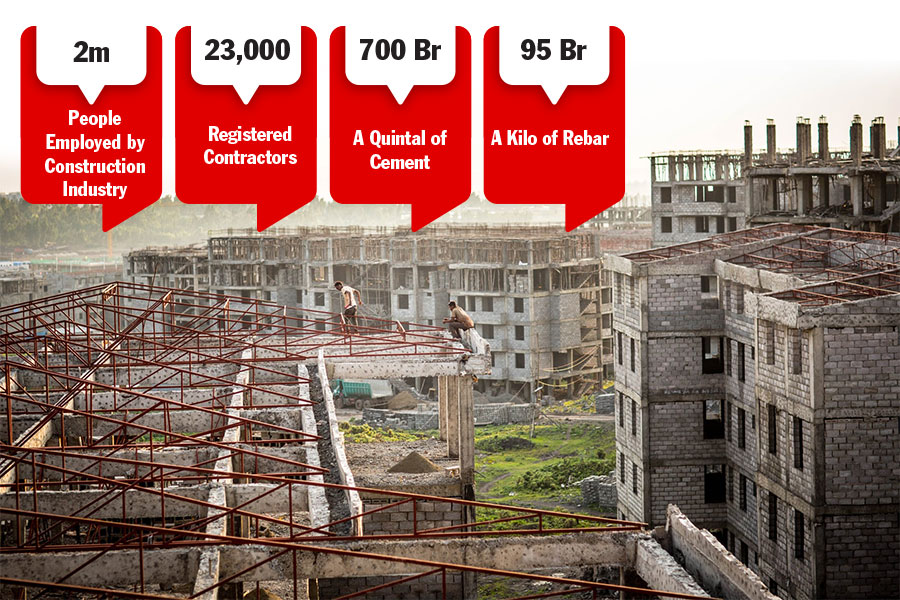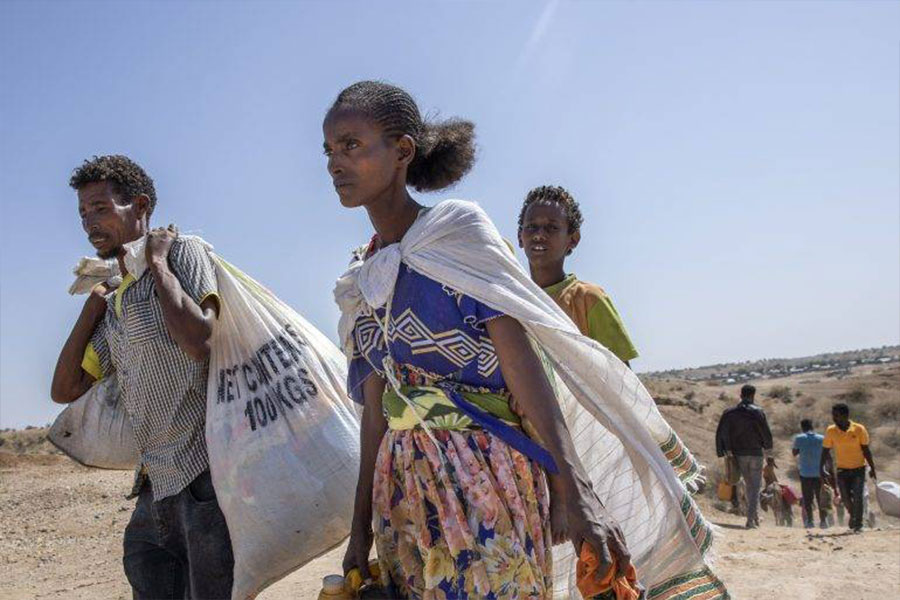
Fortune News | Apr 24,2021
Women’s unions that organize food for public school children in Addis Abeba face a threat to their sustainability due to rapidly rising food prices in the city.
The Addis Abeba City Administration Cabinet responded last week by adding over half a billion Birr to the school feeding program budget, which now amounts 23 Br for a meal for more than half a million students. Of the 100 billion Br budget, the City’s Cabinet approved 2.2 billion Br for the school feeding program at the beginning of this year.
“It doesn’t include the cost of uniforms,” said Mebratu Gebre, budget director at Addis Abeba Finance Bureau.
The school feeding program is considered crucial for academic success, emotional health, and intelligence. However, merely adding more budget will not be sufficient to sustain the program in the long run, according to Messay Mulugeta, a food security expert at Addis Abeba University. He argued short-term budget adjustments are not a targeted response to market prices and urged city officials to establish a supply chain between farmers and unions to provide a more effective solution to the rising costs.
In September, the Federal Cooperative Commission initiated around 4,200 smallholder farmers in six weredas of the Oromia Special Zone to supply 30,000tns of wheat and teff. However, according to Shimekit Maru, program advisor at the Commission, the deal was not feasible since the women could not afford to buy the produce.
Teff is a staple food for most Ethiopians. It was sold for 6,000 Br a month ago, a retail price that hit a historical peak of 10,000 Br last week due to logistics disruption.
A World Bank research finds that hunger impacts school-aged children who use learning opportunities, likely reducing the returns on education investments. School feeding programs were designed to keep kids in school by increasing enrollment and lowering absenteeism. The school feeding program has benefited over 600,000 students in the capital and the newly formed Sheger city.
The program started after Takele Uma took the mayorship in 2019 and expanded to the Oromia Special Zone by the following year.
Misrak Dil Primary School is one of the 1,000 public schools in the capital under the school feeding program. The school has designated a cooking space where women from a union prepare various meals for a little over 1,000 students enrolled from kindergarten to the eighth grade.
According to Zenebech Seme, the human resource manager, the school feeding program has helped improve student performance and attendance. However, she has witnessed the struggles of the cooks to balance their allotted budget with the food they serve.
“I don’t know how they manage it,” she said.
Tadelech, 38, is one of the 17 individuals who have formed a union to prepare meals for Misrak Dil School students since the inception. There are 10,500 women employed under the school feeding scheme huddled under various unions. Each union member earns a monthly pay of 3,000 Br; Tadelech takes on side jobs cleaning houses and washing clothes to make ends meet after paying a monthly rent of 2,500 Br.
The biggest challenge for Tadelech is the scarcity of commodities at the consumer cooperatives. She runs out of essentials quickly.
Liyu Foods, a catering service that offers multiple dishes for ceremonies, costs between 450 Br for fasting and 750 Br for non-fasting meals per person. The company, in business for over 20 years, offers a minimum of 170 Br per dish for snacks. According to the manager, Workbezi Benti, inflation, particularly on food items, has pressured the business. Not having rental expenses is the only advantage that keeps her in business.
“It’s impossible to feed a person with this budget,” Workbezi told Fortune.
PUBLISHED ON
[ VOL
, NO
]

Fortune News | Apr 24,2021

Fortune News | Feb 19,2022

Fortune News | Jul 07,2024

Sunday with Eden | Aug 25,2024

Fortune News | Sep 08,2019

Fortune News | May 11,2024

Radar | Oct 12,2025

Fortune News | Aug 08,2020


Fortune News | Oct 23,2021

Dec 22 , 2024 . By TIZITA SHEWAFERAW
Charged with transforming colossal state-owned enterprises into modern and competitiv...

Aug 18 , 2024 . By AKSAH ITALO
Although predictable Yonas Zerihun's job in the ride-hailing service is not immune to...

Jul 28 , 2024 . By TIZITA SHEWAFERAW
Unhabitual, perhaps too many, Samuel Gebreyohannes, 38, used to occasionally enjoy a couple of beers at breakfast. However, he recently swit...

Jul 13 , 2024 . By AKSAH ITALO
Investors who rely on tractors, trucks, and field vehicles for commuting, transporting commodities, and f...

Oct 25 , 2025
The regulatory machinery is on overdrive. In only two years, no fewer than 35 new pro...

Oct 18 , 2025
The political establishment, notably the ruling party and its top brass, has become p...

Oct 11 , 2025
Ladislas Farago, a roving Associated Press (AP) correspondent, arrived in Ethiopia in...

Oct 4 , 2025
Eyob Tekalegn (PhD) had been in the Governor's chair for only weeks when, on Septembe...